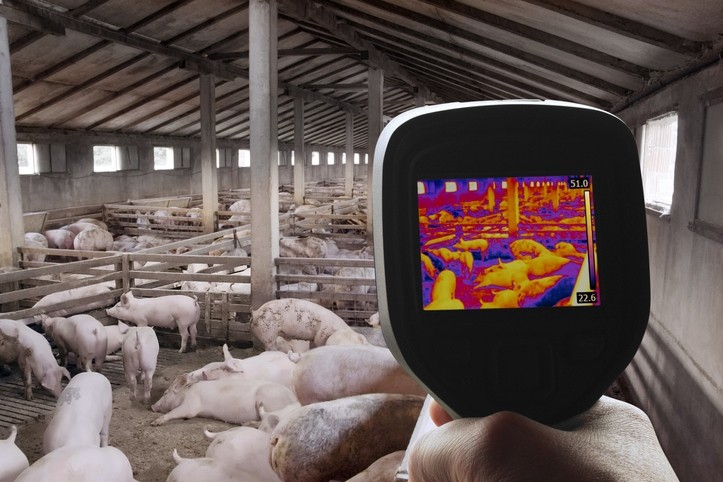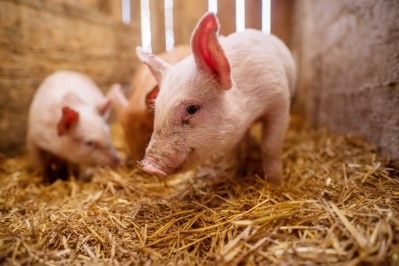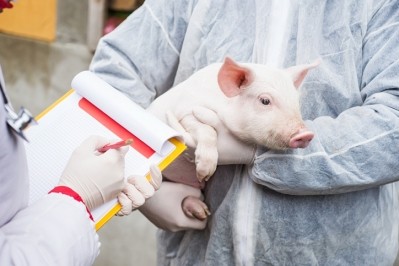1m lbs of smuggled Chinese pork caught at US port as ASF fears continue

China first confirmed the presence of the swine disease in August and it is also known to be present in parts of Europe. African Swine Fever (ASF) has never been found in the US and there is no known treatment or vaccine. However, there are concerns about the potential to import the disease as initial studies have demonstrated the disease’s ability to survive in pork products and feed or feed ingredients.
US Customs and Board Protection (CBP) agricultural specialists stationed at the Port of New York/Newark working with partners at the US Department of Agriculture (USDA) found a quantity of hidden or mislabeled pork products within the last week, said Anthony Bucci, public affairs specialist with the New York Field office of US Customers and Border Protection. “The shipments were coming from China.”
About a million pounds of pork products were discovered in a series of shipping containers, he told us. The products were hidden “among other products such as ramen noodles and tide detergent pods.”
Most of the products discovered were cured pork products, he said.
The seizure included more than 50 shipping containers, reported NJ.com.
Border agents have been watching for attempts to be made to bring these types of products, Bucci said. There is an awareness of pork products because of the potential damage they could bring to the US swine production industry.
The USDA and Customs and Border Protection are continuing to investigate the incident, he said. All the products found will be incinerated.
It is unclear if any of the discovered pork products have been, or will be, tested for the presence of ASF.
Transporting, spreading ASF in feed
Testing to track the potential for the porcine epidemic diarrhea virus (PEDV) to be transmitted through imported feed and feed ingredients raised questions about the possibility that other foreign animal diseases could move in a similar manner, according to information from the Swine Health Information Center (SHIC).
ASF was among the diseases checked for the potential to survive during a simulated export process from China to the US, according to study information. The disease retained its virulence during transport in soybean meal, soy oil cake, choline, cat and dog food, complete feeds and some pork products.
However, not all transmission pathways are related to feed, said Paul Sundberg, executive director with SHIC in an earlier interview. There also is potential for ASF to be spread through imported food contaminated with the virus and then fed to pigs or through contaminated materials.
“What we know about ASF is it’s a hearty virus, it can last a long time in the environment,” he said. “It’s been known to be able to survive for months in the bones and bone marrow of wild boars that have died.”
Ongoing ASF prevention efforts
For the past year, Animal and Plant Health Inspection Service (APHIS) members have been working with CBP to “gather intelligence and target shipments” as part of its effort to keep African swine fever out of the US, a spokesperson with USDA told us.
“APHIS and CBP have also had increased screenings of arrivals at key US commercial, sea and air ports – including checking cargo for illegal pork/pork products,” she said. “We believe that this seizure is likely a result of these joint efforts.”
The USDA has added new steps in its effort to protect producers from foreign animal disease because “continued vigilance” is an important part of the defense involved in stopping imports of illegal products, she said. “USDA and CBP have also expanded arrival screenings for illegal pork and pork products from affected countries and travelers who pose an ASF risk will receive a secondary agricultural inspection,” she added.
“We added 60 additional detector dog teams for a total of 179 dog teams with US Customs and Border Protection at key US commercial sea and air ports,” the spokesperson said. “The detector dogs are essential to sniffing out and finding illegal imported products that can cause significant damage to our country.”
Additionally, the USDA is increasing outreach to educate people about ASF and the actions that can be taken to help protect the US swine herd, the USDA said.
Some of the other work being done includes stepping up inspections at garbage feeding facilities to ensure fed garbage is cooked correctly to address the potential spread of disease and increasing producer awareness, the department said. Efforts to support evaluations of on-farm biosecurity practices are being made.
There also is ongoing work to establish “accurate and reliable testing procedures” to check for ASF presence in “grains, feeds and additives, and swine oral fluid samples,” the USDA said. Prevention efforts are being done in coordination with officials in Canada and Mexico along with members of the US pork industry.











